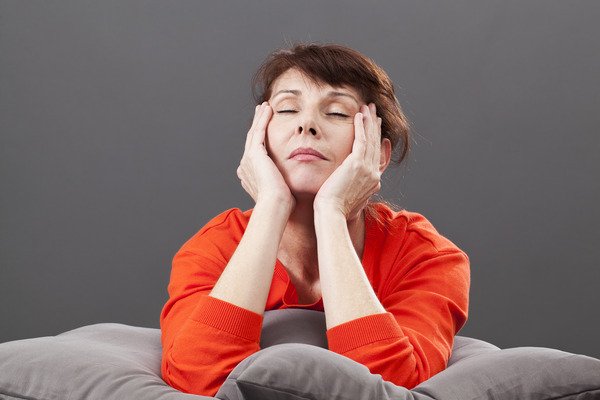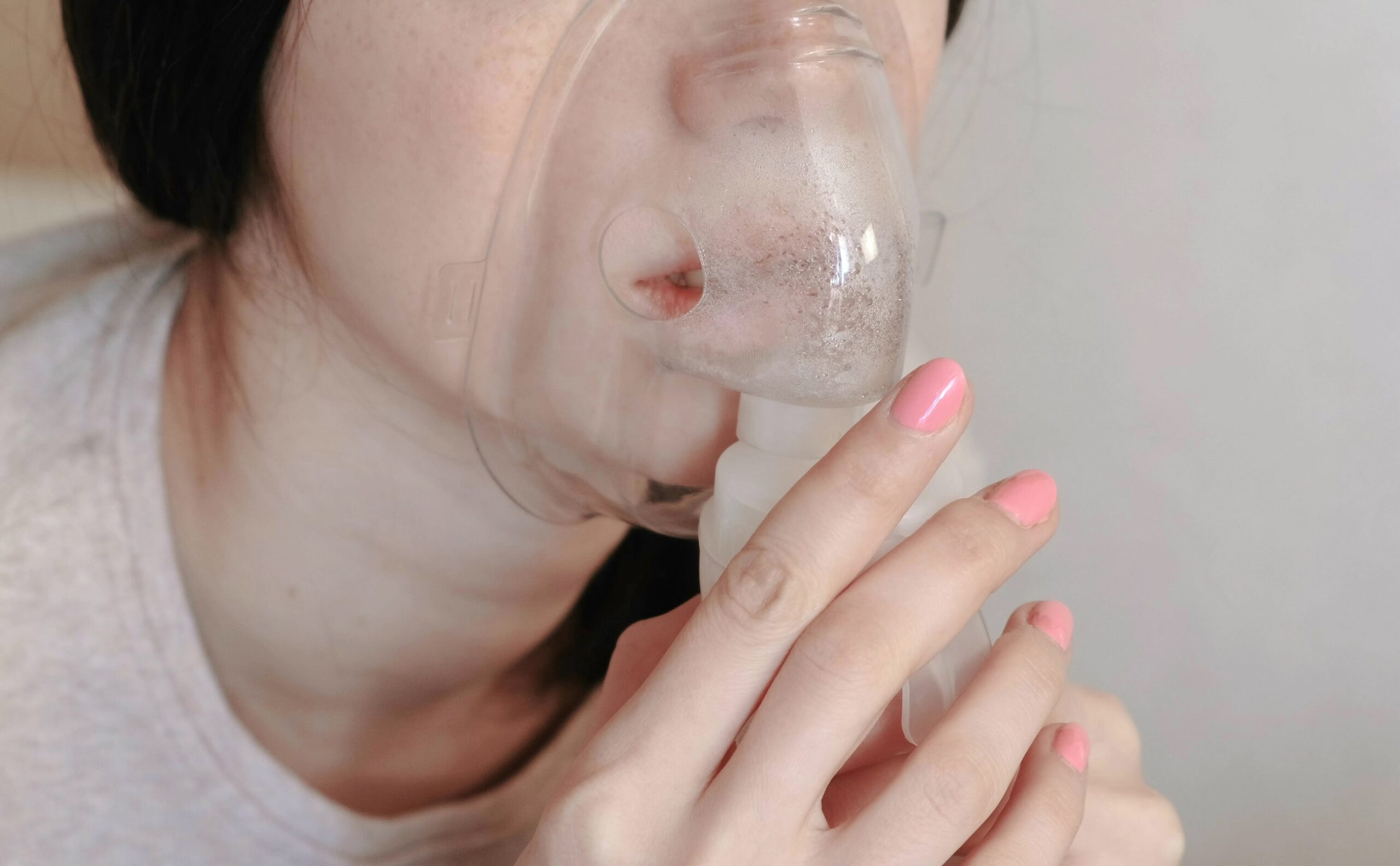How do I know if I have early menopause? How can we face the changes that menopause implies at an early age? Discover the symptoms, causes and how to deal with its effects.

The menopause It is a stage that impacts both the physical and emotional health of women. Normally, the age of menopause is usually between 45 and 50, but in some cases it can occur earlier. When the symptoms of premenopause or the menopause itself occur before the age of 40, it is called early menopause. But what does it mean physically and psychologically to suffer from the symptoms of early menopause?
What is early menopause?
The early menopause is when the final menstrual period occurs before a woman reaches the age of 40. In many cases, premenopause symptoms usually occur between the ages of 40 and 45. But in the case of early menopause, these happen earlier than ‘expected’ due to age.
Women who go through early menopause often experience the same physical health effects as older people. In addition to this, they also face these changes on a psychological level.
What can cause the age of menopause to advance?
The reasons why women who may suffer from early menopause are the following:
- Primary ovarian insufficiency (POI): When periods stop sporadically, either prematurely or early, this is known as ‘primary ovarian insufficiency’ (POI). This event is not the same as menopause at the “expected age”, since in cases where it is advanced, there is a small possibility that ovarian function will resume spontaneously. In fact, when women have these premenopausal symptoms, there are chances of spontaneous pregnancy occurring, especially after the diagnosis has been made.
- Induced menopause: Chemotherapy and radiotherapy treatments can cause the ovaries to stop working, meaning that periods stop and this is usually described as ‘induced menopause’.
- Surgical menopause: Surgical removal of the ovaries also leads to menopause.

Physical symptoms of early menopause
The women with early menopause They may begin to notice changes during the months or years before reaching menopause. This period is called premenopause and its duration is uncertain, since there is no same date in all cases for when menopause can arrive. The symptoms of premenopause or premature menopause are usually very similar to those of menopause, among the most common we find the following:
- Hot flushes: Hot flashes involve feeling hot for no reason. In this way, the skin may look red, the heart may beat faster and you may even feel suddenly cold.
- Night sweats: Night sweats are hot flashes that occur during sleep. They are so intense that they can wake you up from your sleep.
- Sleep disorders: Sleep problems are common during the menopause transition, including problems falling asleep, early waking, and disrupted sleep. Sleep problems are often associated with other premenopause symptoms, such as night sweats.
- Vaginal and sexual symptoms: The loss of estrogen and testosterone in menopause can affect vaginal health and sexual desire. During the menopause transition, women may feel that they are not aroused as easily or that they are less sensitive to caresses or touch.
- Irregular periods: Irregular periods are a clear sign that you may be in a premenopause stage. In fact, periods may become more or less frequent, heavier or lighter, or last longer or shorter than before. In some cases, menstrual changes can begin up to 10 years before periods stop completely.
- Urinary incontinence: This includes persistent, involuntary loss of urine.
- Changes in cognition and memory: Research suggests that changes associated with premenopause They can cause problems with concentration and cognition. In these cases they are usually related to difficulties with verbal learning (memorization and retention), memory, motor function and attention.
- Decreased bone density: When a person goes through menopause, their estrogen levels usually decrease and this leads to bone loss.
What does it mean to suffer from early menopause on a psychological level?
Have them symptoms of early menopause It causes estrogen deficiency, something that is mainly related to many psychological symptoms. Among the most common, we can highlight the following:
- Depression: In some cases, the women with early menopause, especially when this diagnosis is received at a very young age, it can end up leading to a depressive disorder.
- Anxiety: According to studies, women who had menopause induced due to cancer treatment or other factors experienced higher levels of anxiety because of it. In this way, the symptoms of early menopause can end up leading to anxiety.
- Changes in moods: The hormonal change that menopause entails, whether early or not, also implies experiencing changes in women’s mood.
- Loss of libido: Sexual desire is often affected due to the processes that women often go through when experiencing the symptoms of early menopause or menopause
- Low self-esteem: In the early menopause, women often have feelings related to the ‘loss’ of femininity and/or attractiveness. These types of thoughts can influence women’s self-esteem and personal security.
- Loss of sexual self-esteem: Sexual self-esteem refers to how people value themselves sexually. In the case of early menopause, women may suffer from a poor perception of their sexual self-esteem due to all the processes involved in these changes.
Emotional consequences of early menopause
All the changes caused by premature menopause They are associated with different feelings and emotions. We can talk about the following emotional ‘consequences’ of early menopause:
- Responses to loss of fertility: For some women, the early or premature menopause It can take away their ability to be mothers. Although in some cases these women were not sure whether to have children or not, not being able to decide can cause certain emotional havoc.
- Effects on body image: The premature menopause, especially when it happens suddenly, can mean a significant change in the way you view your body. In fact, the sudden drop in hormones that happens in some cases of menopause can make women feel like their body is ‘out of control.’ Additionally, early menopause symptoms such as hot flashes or dry skin may be changes perceived as more significant if experienced in your 20s or 30s.
- Sex and relationships: When it reaches menopause, women have many changes physically and in their mood. Some of the most common symptoms include feeling stressed, self-conscious about your body, depressed, anxious, or even feeling pain or discomfort during sex. In premature menopause, dyspareunia (painful sex) may begin as a physical problem, but then have a continuing effect on psychological well-being and relationships, as it can cause stress and anxiety.
All changes to the premature menopause They often end up having effects on women’s mental health. For this reason, if you are in this situation and you do not know how to deal with everything that this process entails, it is important that you go to a professional psychologist.
How to deal with the symptoms of early menopause?
The women with early menopause They must face many effects on their body and mind. For this reason, in addition to going to a psychologist, we recommend that you take the following into account when these changes occur:
- Speak it: Having someone to confide in about everything you’re going through can help you feel better and more supported in dealing with things. premenopause or menopause symptoms per se.
- Write a diary: Keeping a diary about how you feel and how you deal with day-to-day problems can be a way of learning to live with and accept everything that menopause entails.
- Express yourself creatively: Expressing these feelings and emotions in a creative and/or artistic way can be a good method to help you through the mood changes that this stage entails.
- Practice a healthy lifestyle: In addition to taking care of your mind and giving yourself more space, it is important to practice habits of a healthy lifestyle, such as exercising or eating a balanced diet.
The early menopause It can mean suffering from negative feelings, emotions and thoughts due to everything it entails. Faced with these changes, the best way to face them is to learn more about ourselves.








